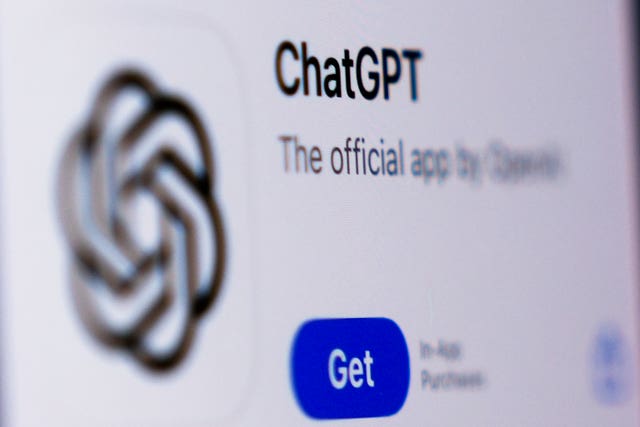
Clive Bull 1am - 4am
8 December 2023, 23:14

The agreement paves the way for legal oversight of technology used in popular generative AI services such as ChatGPT.
European Union negotiators have clinched a deal on the world’s first comprehensive artificial intelligence rules.
The agreement paves the way for legal oversight of technology used in popular generative AI services such as ChatGPT that has promised to transform everyday life and spurred warnings of existential dangers to humanity.
Negotiators from the European Parliament and the bloc’s 27 member countries overcame big differences on controversial points including generative AI and police use of facial recognition surveillance to sign a tentative political agreement for the Artificial Intelligence Act.
“Deal!” tweeted European commissioner Thierry Breton. The bloc’s Parliament and member states “have finally reached a political agreement on the Artificial Intelligence Act!”, the parliamentary committee co-leading the body’s negotiating efforts tweeted.
Historic!
The EU becomes the very first continent to set clear rules for the use of AI 🇪🇺
The #AIAct is much more than a rulebook — it's a launchpad for EU startups and researchers to lead the global AI race.
The best is yet to come! 👍 pic.twitter.com/W9rths31MU
— Thierry Breton (@ThierryBreton) December 8, 2023
It came after marathon closed-door talks this week, with one session lasting 22 hours before a second round kicked off on Friday morning.
Officials provided scant details on what exactly will make it into the eventual law, which would not take effect until 2025 at the earliest.
They were under the gun to secure a political victory for the flagship legislation but were expected to leave the door open to further talks to work out the fine print, likely to bring more backroom lobbying.
The EU took an early lead in the global race to draw up AI guardrails when it unveiled the first draft of its rulebook in 2021. The recent boom in generative AI, however, sent European officials scrambling to update a proposal poised to serve as a blueprint for the world.
Generative AI systems such as OpenAI’s ChatGPT have exploded into the world’s consciousness, dazzling users with the ability to produce human-like text, photos and songs but raising fears about the risks the rapidly developing technology poses to jobs, privacy and copyright protection and even human life itself.

Now, the US, UK, China and global coalitions such as the G7 have jumped in with their own proposals to regulate AI, though they are still catching up to Europe.
Once the final version of the EU’s AI Act is worked out, the text needs approval from the bloc’s 705 politicians before they break up for EU-wide elections next year. That vote is expected to be a formality.
The AI Act was originally designed to mitigate the dangers from specific AI functions based on their level of risk, from low to unacceptable. But politicians pushed to expand it to foundation models, the advanced systems that underpin general purpose AI services such as ChatGPT and Google’s Bard chatbot.
Foundation models looked set to be one of the biggest sticking points for Europe. However, negotiators managed to reach a tentative compromise early in the talks, despite opposition led by France, which called instead for self-regulation to help homegrown European generative AI companies competing with big US rivals including OpenAI’s backer Microsoft.
Also known as large language models, these systems are trained on vast troves of written works and images scraped off the internet. They give generative AI systems the ability to create something new unlike traditional AI, which processes data and completes tasks using predetermined rules.
Deal! #AIAct pic.twitter.com/UwNoqmEHt5
— Thierry Breton (@ThierryBreton) December 8, 2023
Under the deal, the most advanced foundation models that pose the biggest “systemic risks” will get extra scrutiny, including requirements to disclose more information such as how much computing power was used to train the systems.
Researchers have warned that these powerful foundation models, built by a handful of big tech companies, could be used to supercharge online disinformation and manipulation, cyberattacks or creation of bioweapons.
Rights groups also caution that the lack of transparency about data used to train the models poses risks to daily life because they act as basic structures for software developers building AI-powered services.
What became the thorniest topic was AI-powered facial recognition surveillance systems, and negotiators found a compromise after intensive bargaining.
European politicians wanted a full ban on public use of facial scanning and other “remote biometric identification” systems because of privacy concerns while governments of member countries wanted exemptions so law enforcement could use them to tackle serious crimes such as child sexual exploitation or terrorist attacks.